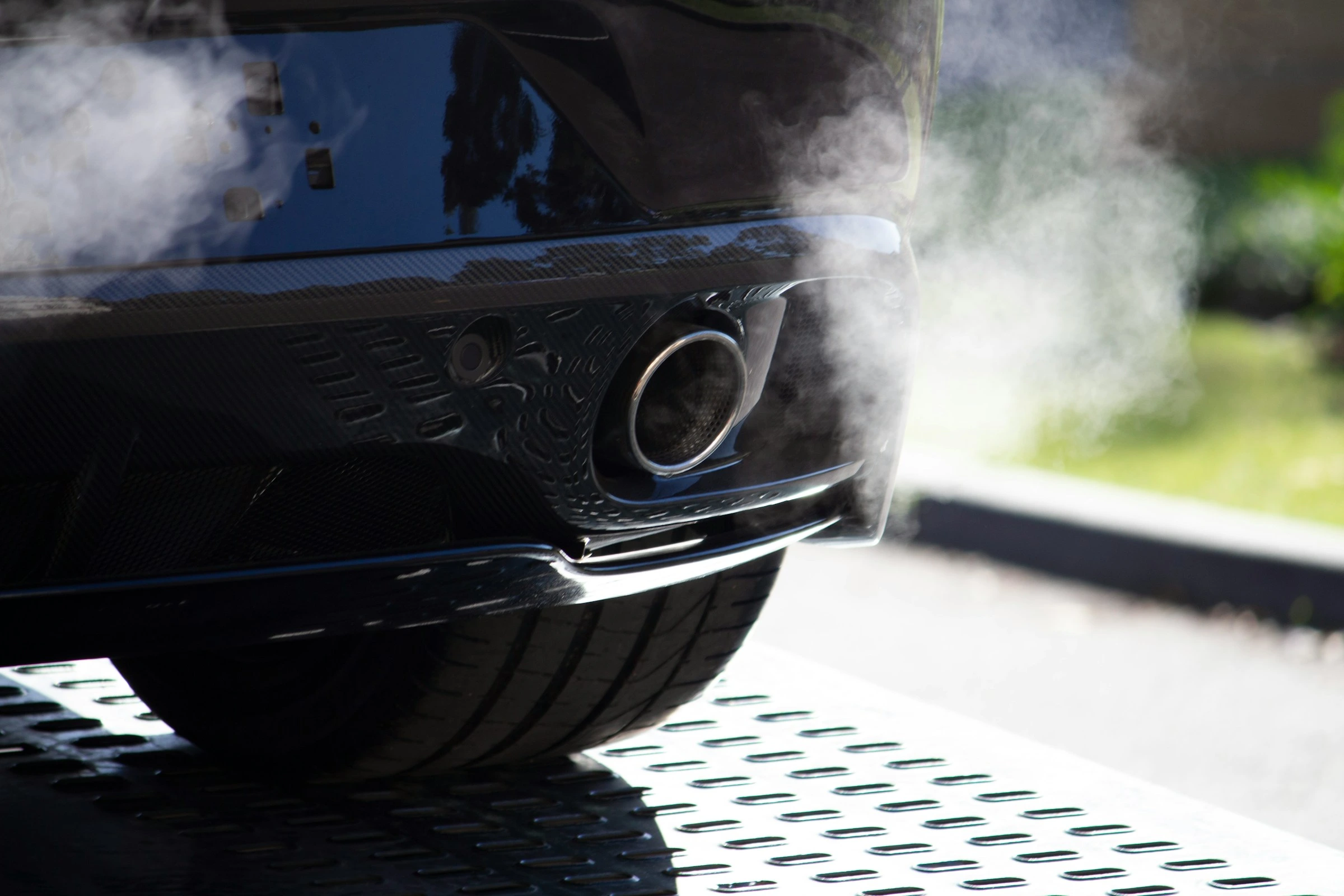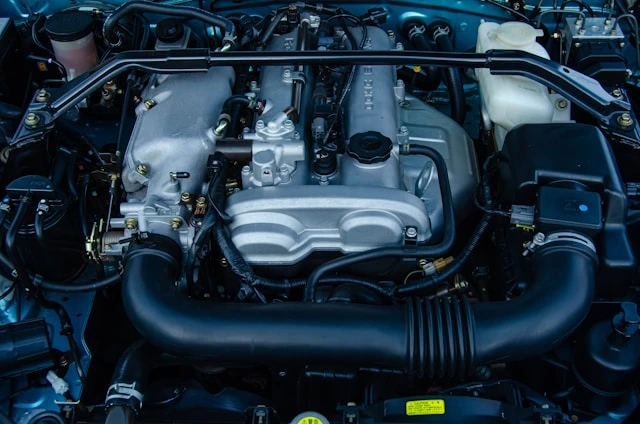Car Noises Decoded - Which Sounds Could Signal an Oil Problem?
19 Jan 2026

The sounds your car makes can communicate a great deal, if you know what to look out for. From knocking under the bonnet to unusual rumbling from deep within, car noises act as an early warning system. Some car noises are so distinctive that technologies are being explored to help identify car issues through sound, but trained mechanics remain the best resource today.
Oil-related issues can sometimes contribute to engine noise, especially when lubrication is insufficient. This guide to car noise issues will help you decode the sounds coming from your vehicle, allowing you to resolve problems before damage occurs.
When to Be Concerned About Car Noises
To identify car noises that should concern you, you need a clear baseline against which to compare any unusual sounds. Familiarise yourself with your car's characteristic sounds when operating in optimal condition, either when new or after your first car service. New, unusual, or persistent sounds that aren’t typically present often signal a problem and should be investigated promptly.
How Do I Stop My Car Making Noise?
In order to resolve car noise issues, the first step is to identify the source of the sounds. Engine issues, worn tyres, leaky window seals, cracked exhausts, and even loose items in the cabin can all be to blame. Once you are aware of the cause of the noises coming from your car, you will be equipped to resolve the problem. This may involve a visit to a mechanic, but taking prompt action can prevent potentially costly repairs later on.
What Do Different Noises Mean in a Car?
Problematic car noises fall into a few different categories, and each can communicate different issues:
- Knocking or Thudding from the Engine: One of the most potentially serious signs of oil-related problems, a deep banging from within the engine- especially when under high load- suggests a lack of lubrication. Low or degraded oil levels, or an incorrect oil viscosity for your engine, can hinder proper lubrication, especially in extreme temperatures, resulting in engine components going without the protective barrier needed.
Why is my car making a hitting noise? Insufficient lubrication results in metal-on-metal contact between moving parts like connecting rods and the crankshaft, and the bearings that support them becoming worn. This then creates these characteristic knocking or hitting sounds.
How to fix car knocking noises? Check oil levels immediately, topping up if levels are low, and scheduling an oil change and service as soon as possible if it is dirty or sludgy. If these sounds persist, it is vital to get your car checked by a mechanic without delay. Left unchecked, serious wear and tear can result.

- Rumbling Sounds: Depending on where the rumbling originates, this can signify a range of different issues. Listening for the source of the sound and identifying if it is louder when idling or accelerating can help identify the cause. Sources of rumbling range from an improper air/fuel mix in the engine to exhaust leaks to worn tyres or dysfunctional wheel bearings.
Why is my car making a deep rumbling sound? Rumblings due to wheel and tyre issues will become louder when accelerating, while exhaust problems are often consistently audible whether driving or idling. Engine issues like clogged air filters and fuel mixture problems are typically audible when idling but increase in volume when accelerating. An experienced mechanic should be able to help isolate the source of the sounds and address the problem swiftly.
- High-Pitched Whining: A high-pitched whining may suggest several potential issues. If related to lubrication, it may point to low oil levels or oil quality issues, especially if the sound increases with acceleration. Low oil levels, or pumping oil that has become too viscous due to contamination or wintry conditions, can overwork the oil pump. Worn engine components without sufficient lubrication, experiencing excess friction, can also result in shrill whining sounds.
How do I stop my car from whining? Check oil levels and look for signs of contamination and degradation. Top levels up if needed, and replace oil if it is dark, dirty, or smells burnt. If the noise continues despite an oil change, get an experienced mechanic to check the oil pump.
- Grinding While Driving: Grinding sounds are often related to brakes or gears, but growling or grinding sounds when the car is in motion can also indicate oil problems. Lack of lubrication in engine components and associated parts such as gears and wheel bearings causes metal-on-metal contact which results in grinding sounds. Low oil levels and dirty oil can also create these noises, but will typically be accompanied by noticeable overheating and compromised performance. If the grinding occurs especially when braking, it suggests your brake pads have worn thin and need replacing urgently.
Is it safe to drive with a grinding noise? Sources of grinding noises within the engine can quickly lead to overheating and component damage, while worn brake pads will seriously impact stopping power. Pull over and allow the engine to cool if needed. Check and replace your oil if levels are low or quality has deteriorated, and consult a mechanic as soon as possible if your brakes need attention.
- Sizzling or Hissing Noises Paired with Burning Smells: When accompanied by burning oil smells, these types of sounds suggest that the engine is leaking oil. This oil then burns when it hits hot components, eg. the exhaust manifold. A hissing noise can also be caused by vacuum leaks, or the engine overheating, but the smell of burning oil will be absent.
Why is my car making a hissing noise? An overfilled oil reservoir can lead to excessive pressure or foaming, which may cause leaks or unusual engine behaviour, while leaky or worn seals and loose filters can all cause noises like this. Aside from the fire risk posed by burning oil, leaks can quickly result in low oil levels, reduced oil pressure, and insufficient lubrication within the engine. This can then lead to further problems developing, and cause some of the other car noise issues mentioned previously.
What to do if a car is hissing? If you notice these symptoms, it’s best to visit a certified service centre like Gulf Express for a professional check-up. You may wish to check under the bonnet yourself for signs of leaks, overheating, or damage, making sure to wait a minimum of 30 minutes for the engine to cool down. If the problem is not immediately obvious, or you need assistance remedying the source of the hissing noises, consult an experienced mechanic promptly to prevent further damage.
How to Avoid Oil Problem?
Avoiding oil problems and their associated car noises is normally a straightforward matter of maintenance and vigilance:
- Follow the manufacturer’s recommendations for servicing and oil change schedules.
- Check oil levels, clarity, and cleanliness regularly, topping up and changing when needed.
- Use the best quality engine oil and oil filters that you can.
- Pay attention to how your car sounds and runs, and if you notice any unusual noises or other changes, have them addressed promptly.
Car noises related to oil issues are typically very noticeable, and heeding these auditory warnings early will allow you to diagnose and resolve problems before they develop further. Quite often, the cause of these sounds is a lack of lubrication within the engine, which, if left unchecked, can ultimately lead to catastrophic engine failure. Remedy the situation quickly, however, and you can avoid costly repairs and serious damage.
If you have concerns about unusual noises coming from your car, or want more information on keeping your vehicle running smoothly and quietly, visit your nearest Gulf Express Centre.
For an oil change and service at one of our specialist centres, to ensure your car is benefitting from the highest quality engine oil available, book in at your nearest Gulf Express centre today.

